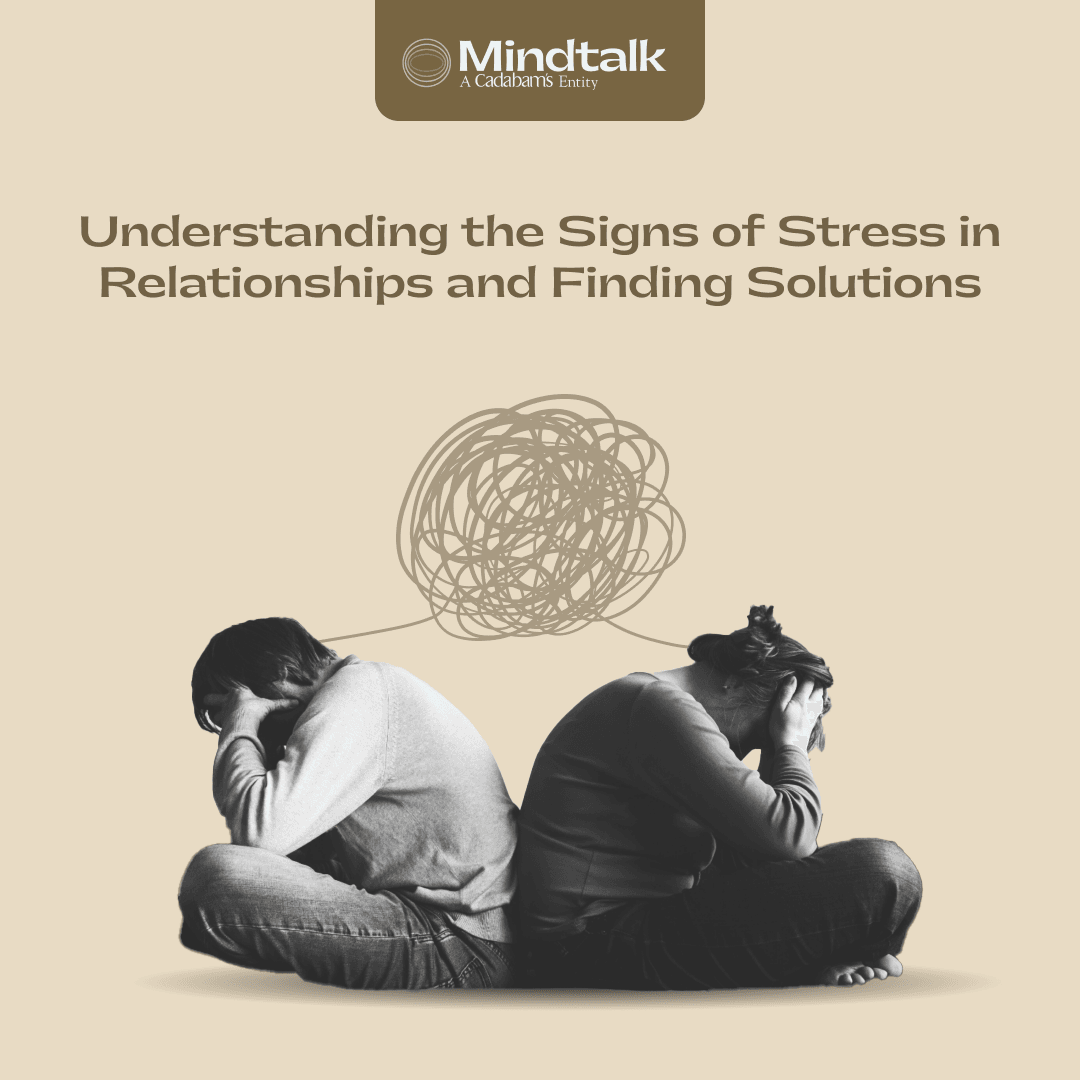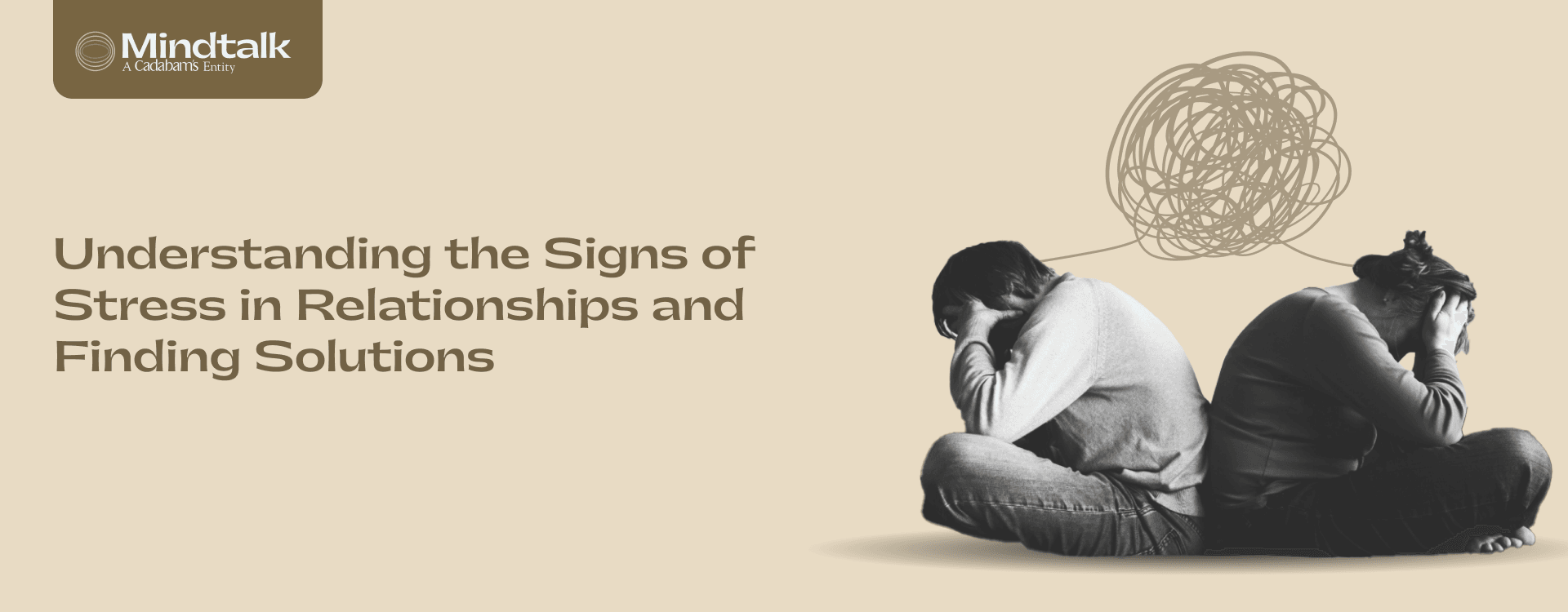Understanding The Signs Of Stress In Relationships And Finding Solutions

Relationships are forged on a strong foundation of mutual love and affection, and yet, they often hinge on a delicate balance. Stress may unsettle this balance by affecting communication, intimacy, and mutual understanding. Identifying the early signs of stress within the dynamics of a partnership is crucial for maintaining a healthy connection. This article will explore the subtle ways stress infiltrates relationships and will offer practical solutions for addressing these challenges, fostering resilience, and deepening bonds.
Understanding Stress And Its Influence On Relationships
Stress is our body’s natural response to challenges or demands, characterized by physical, emotional, and mental reactions. Job responsibilities, financial matters, and familial obligations, among other things, frequently serve as sources of stress. Prolonged stress holds the potential to strain any relationship. Addressing stress together is crucial for maintaining a healthy, supportive partnership.
How Does Stress Affect Your Relationships?
Stress affects relationships by causing communication breakdowns, reducing emotional and physical intimacy, and leading to behavioral changes like withdrawal or aggression. It can also result in projecting stress onto partners, creating unnecessary conflicts. This impacts the dynamic between partners and can ultimately erode the strength and satisfaction of relationships.
What Is The Most Stressful Thing In A Relationship?
While pinpointing the single biggest stressor in a relationship is challenging, it may be attributed to communication issues. Constant communication breakdowns, misunderstandings, unmet expectations, and the inability to effectively express needs and feelings can create significant tension. These challenges, if left unaddressed, can escalate into larger conflicts, undermining the foundation of trust and connection that relationships rely on.
Key Signs Of Stress Affecting Your Relationship
When stress starts affecting a relationship, several key signs may become apparent that may lead to noticeable shifts in interaction and emotional connection. Recognizing these signs is crucial for maintaining a healthy bond.
Communication Breakdowns And Increased Conflicts
Frequent arguments over minor issues and a noticeable decline in open, honest communication signal stress impacting a relationship. When stress levels rise, misunderstandings become more common, leading to a cycle of conflicts and frustration that can be hard to break without addressing the root causes.
Emotional Distance And Lack Of Intimacy\
Stress can lead to partners feeling emotionally disconnected from each other, resulting in reduced physical and emotional intimacy. This distancing can manifest as less time spent together, diminished affection, and a decrease in sharing personal thoughts and feelings, which are vital for a strong, connected relationship.
Changes In Behavior And Affection Levels
Stress may cause noticeable changes in behavior and affection levels within a relationship. This can include withdrawal from the partner, decreased interest in shared activities, or sudden shifts in mood and temperament. Such changes affect not only the day-to-day dynamics of a relationship but also the overall sense of partnership and togetherness.
Common Stressors In Relationships
Relationships face various stressors that can challenge the strength and stability of the bond between partners, from external pressures to internal conflicts.
Long-Term Stress
Chronic stress from work, finances, or health issues can seep into relationships, creating a persistent tension that wears down communication and intimacy over time. Addressing these stressors requires concerted effort and often external support to mitigate their impact.
Lost Trust
Trust is the foundation of any relationship, and once it's damaged, stress levels can skyrocket. Rebuilding trust demands patience, transparency, and commitment, but the journey can be fraught with anxiety and uncertainty for both partners.
Regular Fights
Frequent arguments over seemingly small issues are a clear indicator of underlying stress. These conflicts often stem from deeper frustrations or unresolved issues, requiring both partners to engage in open, constructive dialogue to find lasting solutions.
Breakups
The prospect or reality of a breakup is an extreme stressor, triggering profound emotional turmoil and uncertainty. Navigating this phase involves coping with the loss, understanding the reasons behind the breakup, and gradually rebuilding one's sense of self and future.
What Are The Tips For Dealing With Emotional Stress?
Effectively managing emotional stress is crucial for maintaining personal well-being and the health of your relationships. Here are some strategies to navigate these challenging times.
Identify What’s Causing Stress
Understanding the root cause of your stress is the first step towards managing it. Reflect on your feelings, thoughts, and external circumstances to identify specific stressors. This self-awareness is crucial for developing targeted strategies to mitigate stress.
Engage In Conversation With Your Partner
Open communication with your partner can significantly reduce stress. Share your feelings, fears, and concerns honestly, and listen to your partner's perspective. This mutual support fosters a stronger bond and a collaborative approach to problem-solving.
Look For A Fresh Perspective
Sometimes, stepping back and viewing your situation from a different angle can help lessen the emotional impact of stress. Discussing your stressors with friends, family, or a counselor can provide new insights and strategies for coping.
Seeking Professional Help: When And Why?
If stress becomes overwhelming, affecting your health and relationship, it's time to seek professional help. A therapist can offer tools and techniques to manage stress effectively. This step is vital for preventing the escalation of stress-related issues and for promoting emotional and relational healing.
Therapies To Manage Stress In Relationship
Various therapeutic approaches can help couples manage stress, improving their communication, understanding, and connection.
Cognitive Behavioral Therapy (CBT)
CBT helps individuals identify and change negative thought patterns and behaviors that contribute to stress. It's effective in addressing communication issues and conflicts within relationships, fostering healthier interactions.
Mindfulness-Based Cognitive Therapy (MBCT)
MBCT combines mindfulness practices with cognitive therapy to help individuals become more aware of the present moment, reducing rumination and anxiety. It encourages a non-judgmental stance towards stress, enhancing emotional regulation in relationships.
Mindfulness-Based Stress Reduction (MBSR)
MBSR teaches stress management through mindfulness meditation and yoga. By focusing on the present, individuals can reduce overall stress levels, leading to more patience, understanding, and empathy within relationships.
Strengthening Your Relationship Bond In The Face Of Stress With Mindtalk
Ready to fortify your relationship against the challenges of stress? Join us at Mindtalk for expert support and practical tips on navigating stress together. From communication strategies to mindfulness practices, discover how to deepen your connection and build resilience as a couple. Don't let stress dictate your relationship's future. Take the first step towards a stronger bond today with Mindtalk. Strengthen your partnership in the face of adversity. Contact us at 07353400999.











